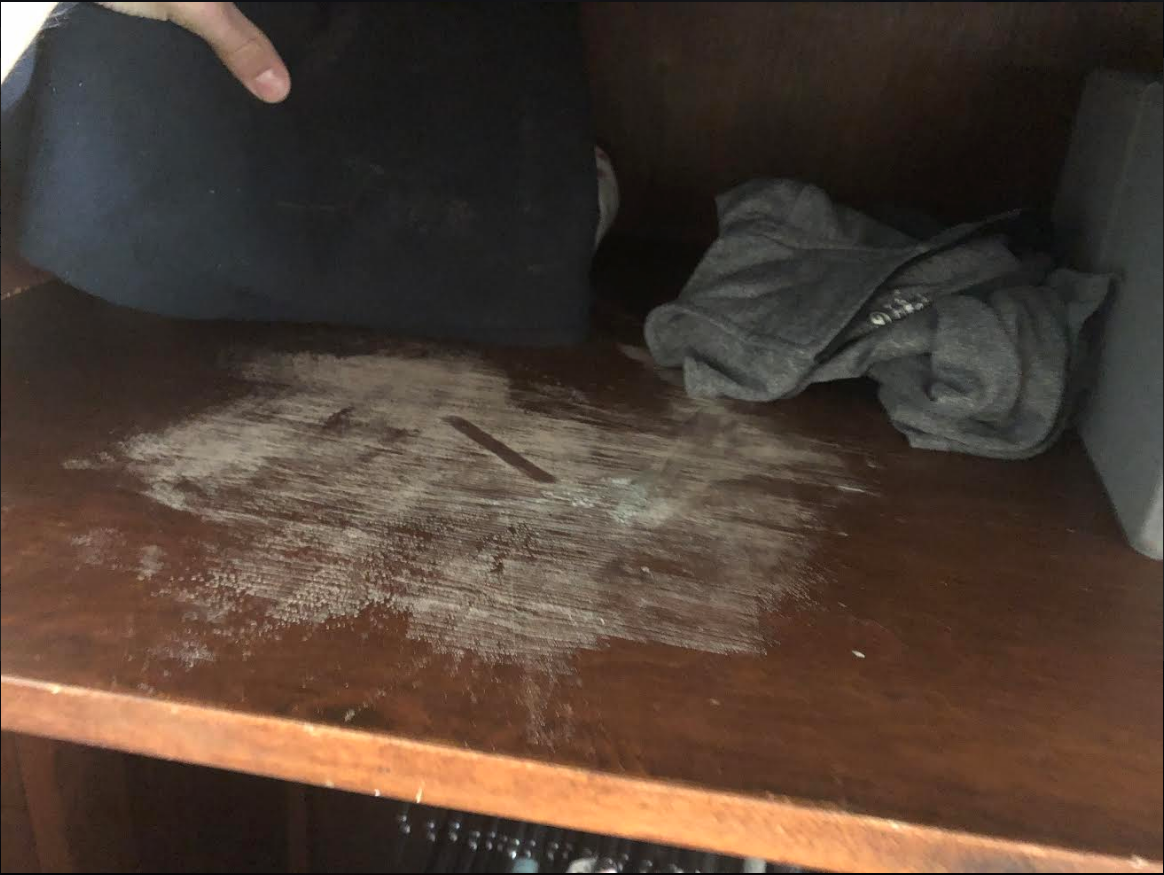Mold causes concern in multiple residence halls
3 min read
Katie Hipple
By ETHAN BLOUCH
Staff Writer
The mold infestation which began in Alvey and Arrington has spread to at least three other dorms on campus. Right now, a less severe case of mold growth is present particularly in Bushnell and Virginia Halls but also in Ball Hall, as resident junior Kathryn Hartraft told the Blue and Gray.
The primary cause of the mold, according to Dean Dave Fleming, is the rising humidity levels this semester in combination with improper air conditioning settings and students leaving wet clothing unattended. Based on information from mold-adviser.com, the types of molds reported resemble Alternaria, which grows around areas with water damage, and/or Aspergillus which grows on walls and clothing.
“Right now, what we’re facing is the conditions that have been going down the Eastern seaboard,” said Dean Fleming. “We’re dealing with higher humidity levels…higher moisture levels…the water in the air isn’t turning into dew…so we’ve responded to a much higher level of mold and mildew growths in our halls.”
Associate Vice President of the Facilities Services John Wiltenmuth said that this semester there have been 11 work requests pertaining to mold in dorm rooms in Virginia Hall and 23 in Bushnell, along with additional reports for community baths and study spaces. The threats to student health could include respiratory illness and allergic reactions, depending on the type of mold and the extent to which it has grown.
There have been some accounts of work orders taking a long time to go through. UMW student Meggie Hinson reported that some of her friends in Jefferson Hall have had mold problems since the installation of new AC units, and that the work order took a long time to complete. “One friend had to send multiple emails every other day till they came and fixed it,” she said.

UMW alum, Callie Hernandez, graduated in 2015 but says that she remembers the mold as being terrible when she lived in Bushnell between 2011-2012. “I don’t even want to think about how bad it must be now,” she said.
Dean Fleming denied rumors of Virginia Hall being shut down next semester due to the mold growth. “It is not an accurate rumor. Virginia is scheduled to close in summer 2020 for renovation. It will reopen in fall 2021,” he said.
As an email sent by Lisa Marvasti to students before fall break stated, Residence Life asks that air conditioners be set between 68 to 70 degrees, that the fan speed be on low, and that the air conditioner filter be checked for dirt and dust regularly.
Sophomore and prospective biology major Katie Hipple said that she has found mold in her Bushnell dorm room despite following suggested guidelines. While preparing for fall break, she discovered her closet and shoes were covered with white, speckled mold.
“Our AC is kept at the recommended temperature, and mold was found growing in my roommate’s closet as well,” Hipple said. She stated that she and her roommates were in the habit of cleaning the bathroom every weekend and that she had not been in her dorm the week prior to the mold growth.
Hipple experienced some health issues as a result of the mold. “As soon as I walked into the room, my allergies went off, and by the time I left the room about 30 minutes later it became difficult to breathe,” she said.
A number of students surveyed, including those living in Bushnell and Virginia Halls, reported that they didn’t have a problem with mold in their rooms or knowledge of anyone who did.
A previous version of this article stated that one of the causes of the mold in residence halls is air conditioning systems breaking down. This is incorrect. Broken air conditioning units are not a factor to increased mold growth this fall. According to Dean Fleming, some units were found to be on improper settings in the rooms where mold was discovered. The article has since been corrected.


